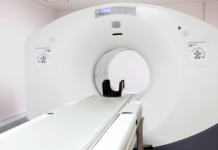Last Updated on September 15, 2023 by Fumipets
Anti-Vax Trend May Harm Pet Dogs, With Half of Owners Against Immunization
In a world where vaccine hesitancy is a pressing issue, it’s not just humans who are affected. A recent survey of 2,200 dog owners has shed light on a concerning trend – canine vaccine hesitancy.
This phenomenon highlights a spillover effect from human vaccine mistrust to our beloved pets, even for life-threatening conditions like rabies.
The Surprising Findings
The survey revealed some startling statistics:
- Nearly 40% of dog owners question the safety of dog vaccines.
- Approximately 20% doubt their effectiveness.
- A concerning 30% believe these vaccines are medically unnecessary.
- Shockingly, 37% of dog owners think vaccinating their pets could lead to autism.
Implications for Public Health
This growing hesitancy poses potential risks not only to unvaccinated dogs but also to other animals, humans, and even veterinarians. Rabies, with its nearly 100% fatality rate for both animals and humans, remains a significant concern. In the U.S., most states require rabies vaccination for dogs.
While experts believe canine vaccine hesitancy isn’t yet a widespread public health threat, it highlights a need to rebuild trust in human vaccines. Various factors contribute to vaccine hesitancy, and addressing them requires a tailored approach.
Expert Insights
Dr. Jessica Bell, a clinical assistant professor at Washington State University, emphasizes the necessity of dog and cat vaccinations for the safety of both pet and human populations. She encourages professional discussions with veterinarians to determine the right vaccine protocol for each pet’s unique needs.
Ultimately, education and accessible vaccination options are essential to combat vaccine hesitancy in pets. Let’s prioritize the well-being of our furry friends and the broader community.
This article was originally published in U.S. News & World Report


















